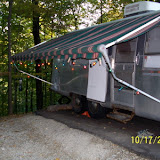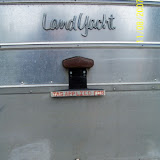The church I attend is presenting a series of sermons and activities emphasizing the theme, Make Poverty History. There is even a theme song, written by a member, Dave Frauman, and the choir master, Chris Schroeder. We dressed in white, made a big circle out on Triangle Park in the rain, and wore white arm bands.
A lot of conversation is going around about this theme, not just here, but world-wide. The theme seems to have begun in the UK, with that great celebrity social justice champion, Bono, in the lead, joined by Nelson Mandela, and since 2005, the addition of a coalition of thousands of global organizations.
The main idea is that we have been conditioned to think of poverty in a certain way, as another social justice issue against which we are at war. Actually, we've been at war against poverty for most of my life, politically speaking. Rather than stay bogged down in the history of war against poverty, we must see the poor as individuals with gifts and dreams, who live in a world of abundance.
Here, where I live and worship, the theme is acutely in focus, given that the church sits in the middle of a poverty-stricken area of the city. I hear the pathology in that previous sentence. The World Health Organization has identified poverty as a public health crisis. To be poverty-stricken is like having a case of the measles, maybe, or like having a chronic but incurable condition, like diabetes. You learn to live with it, within its boundaries. How do you see disease as a gift?
What our ministers want us to think about is the notion that poverty is already history, because we will be looking upon those previously understood as poor as being full of abundance. This is part of an asset-based community development philosophy. Rather than focusing on the needs, that are endless, chronic, and incurable, we focus on the strengths, abilities, gifts, and dreams coexisting with the needs. I have a lot of cognitive dissonance about this series. I hope it provokes a lot of conversation -- like this blog that I am writing. I hope others are finding it provocative in the best way, as motivation to act.
Having worked in the church for a long time, I wonder what the staff would rather have -- people complaining about who has a key and who doesn't, about using drums in the sanctuary, about playing certain kinds of music by certain kinds of trained or untrained musicians; OR, would they rather have people disturbed by a sermon series on poverty, thinking and puzzling over the meaning of a concept, wondering, indeed, what is the Gospel in this series? Where is the good news? What am I going to have to change about my thinking in order to embrace this concept of poverty?
I've heard that when someone comes to the church to ask for financial help with a power bill, or for food from the pantry, staff and volunteers first ask them to sit down and talk. They ask them about who they are, their story, their dreams, and their gifts. I have heard that some amazing connections have been made in these conversations. Someone found a job by having one of these conversations. Sometimes people go away empty-handed, and staff and volunteers go to their homes to visit them and bring them things they need. Sometimes, they bring a phone number or contact about a job.
I have used the paradoxical thinking about despair and the ultimate overcoming good news. I have written to friends and coalition partners about the proleptic apocalyptic hope that the world is changing toward full rights and recognition of the right to marry for same-sex couples. I have actually written that love has already won. We're just waiting for the world to catch up so we can move on to significant struggles -- like poverty! And universal single-provider health care. I can write about this hope with a certain degree of confidence concerning the freedom to marry because the coalitions working on solving this problem are powerful, wealthy, and persistent. It could also be true that the numbers of people who are wanting to marry are far fewer than the numbers who are caught in poverty. I can write with a certain degree of confidence that the world will change. Even if we have to wait for the Jesse Helmses of the world to die, and a new generation comes along with freedom from this particular bigotry. The same kinds of upstream dynamics are involved -- get the attention and win the concern of those in power and influence, and you can solve a lot of problems. Not many believe poverty can be solved the old-fashioned way.
Dave and Chris wrote, 850,000,000 live in poverty. Unknown millions are uninsured -- and I am now among those now that I am unemployed.
Is poverty already history? The poor are beloved children of God whose gifts and dreams are waiting to be known and expressed. Is this a romantic notion, to say that all we need to do is reframe our thinking about what it means to be rich, so that no one is actually poor? What about people who can't buy groceries, who cannot buy medicine, who cannot pay rent, who cannot air condition their babies and elders in the summer or provide them with heat in the winter? Sure, the poor, or those formerly known as "the poor" can grow gardens and sell the produce. Is that what we mean?
I am always thinking "upstream," especially about poverty and health. I blame our free market economy for most of these problems. If we can fix the system, we can feed everyone, employ everyone, and take care of the health care needs of everyone. Throwing money at the downstream symptoms of a broken system, upstream, will be a never-ending process.
This kind of upstream thinking reaches back to bite me all the time, puts distance between me and the poor. I struggle all the time with liberal white guilt. What do I have to offer the neighbors? Who am I but just another upper class white woman, with my privileged education and background? I want to do good, but I am not OF the people, never have been, never will be. This kind of distance is not helping anyone.
Does this mean I have to move into the neighborhood into a house left derelict by absentee landlords, to legitimize my concern for the people who live there? If I want to bridge the chasm between Broadway UMC and Mapleton-Fall Creek, do I need to sell everything I own and give it to the neighbors? What is the answer to this distance that I not only feel, but that exists in every manifestation of my own life -- where I live, where I sleep, where I shop, what I wear, what I think about most of the time, whom I entertain in my home, how I spend my free time ... There is no end to need and giving in respond to need. In some ways, giving is easy. Out of my abundance, I can give generously, even when I am unemployed.
In my present state of sabbatical, I am miles ahead of someone else who has never had an education, never had the comfort and care of health insurance; I suffer no debilitating conditions. I don't have children to care for (not biologically, not solely mine to raise). The times I injured my back (who knows how?) I have been able to have surgery, no questions asked. I managed to recover from the bills in my deductible period and the 20% co-pay. I can take medicine when I need it. I have a healthy savings account. I own property. Is all of that true for those who live close to the church? How much more difficult would it be for a fifty-year-old woman who is my opposite in disadvantages to recover from life's insults and surprises?
I hope this proposal to make poverty history is not just about reframing our thinking. Rather, I hope this is about creating a different kind of economy, with a different kind of currency. I hope we are talking about the abolition of poverty by the creation of communities that value different ways of being in the world. I'd love to see maybe a six-block radius around our church begin to live into a new way of thinking about economy, community, and value. We certainly can't wait for the city to respond. The neighbors can't wait for the church to provide the answer to what is lacking, although they do have a food pantry and a growing sense of neighbors helping neighbors.
Poverty is already over? Abundance is all around? This will take new eyes to see, new ears to hear. What will become the new currency, the new economy? Is this happening anywhere else besides Mapleton-Fall Creek in Indianapolis?
Right now, I am still struggling with my white privileged guilt, still thinking upstream, unable to put these pieces together yet. Right now, this all still feels like a liberal thought experiment. I cannot imagine telling someone who cannot put food on the table that her poverty is an illusion, that it is over, that life is abundant, that her dreams are more important than anything I could give right now, in the present moment.
Tuesday, July 8, 2008
Subscribe to:
Comments (Atom)


